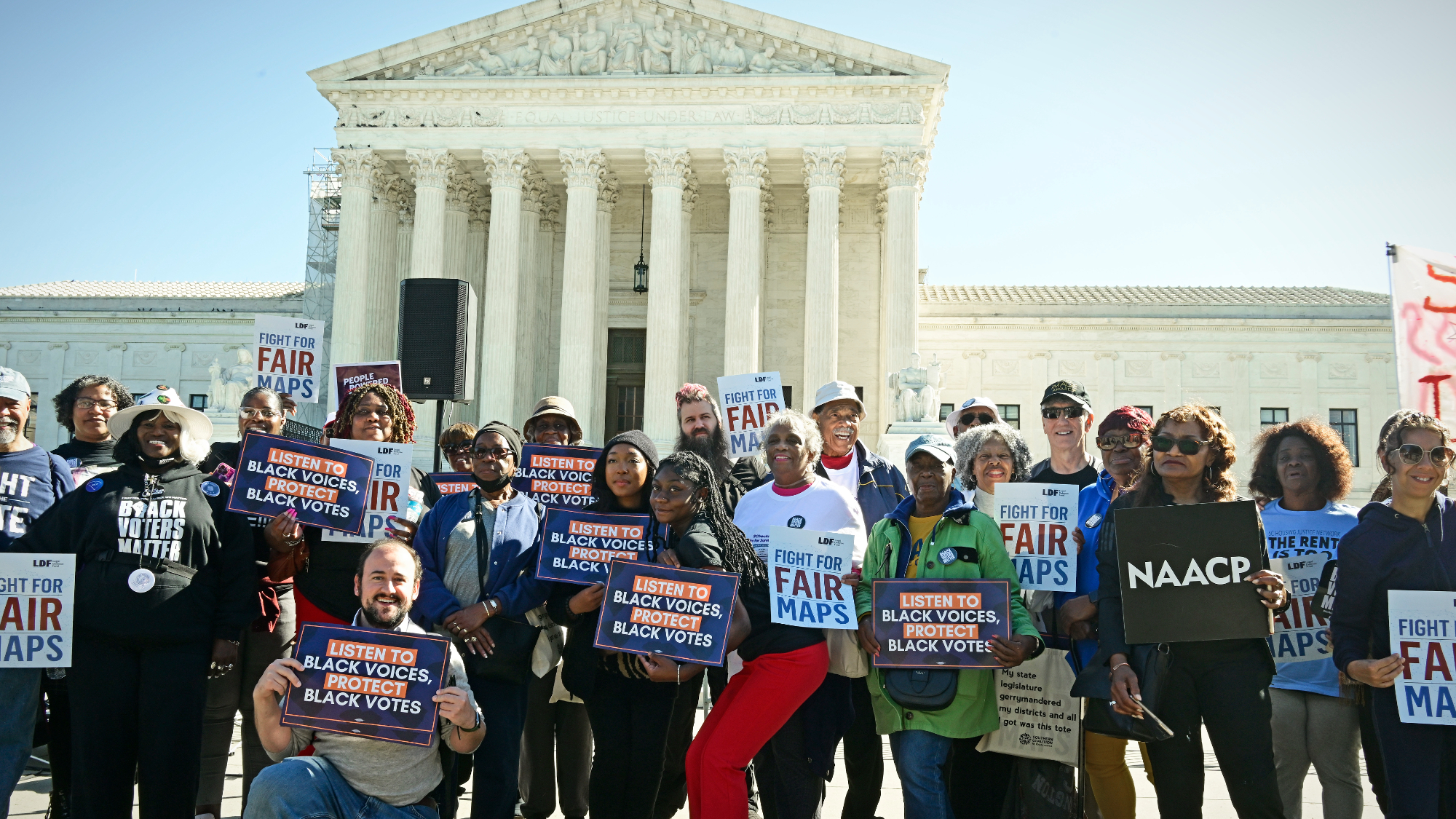Supreme Court lowers bar for racial gerrymanders
The court rejected a claim that South Carolina's congressional map excluded Black voters


A free daily email with the biggest news stories of the day – and the best features from TheWeek.com
You are now subscribed
Your newsletter sign-up was successful
What happened
The Supreme Court voted 6-3 Thursday to keep in place a South Carolina congressional map that a lower court had ruled an impermissible racial gerrymander. Justice Samuel Alito, writing for the court's conservatives, said the challengers had failed to prove the state's Republican legislature had removed a swath of Black voters from the Charleston-area swing district due to race instead of allowable "partisan preferences."
Who said what
"The challengers introduced more than enough evidence of racial gerrymandering," Justice Elena Kagan wrote in a blunt dissent for the court's three liberals. Alito's majority opinion betrays a "lack of familiarity with the events and evidence central to this case," she said, and creates "special rules to specifically disadvantage suits to remedy race based-redistricting."
The court's conservative majority "effectively substituted their judgment about what actually happened for that of the district court," said University of Texas law professor Steve Vladeck to CNN. The Supreme Court is only supposed to do that when "lower court findings are clearly erroneous," Rick Hasen said at Election Law Blog. The "bottom line practical" impact of the ruling is that Alito has "once again come up with a legal framework that makes it easier for Republican states to engage in redistricting to help white Republicans maximize their political power."
What next?
Alito's opinion "did not entirely foreclose the possibility that civil rights groups might eventually prevail" using a different legal theory, Politico said. But "the chances of any changes in the map this year seem vanishingly remote."
The Week
Escape your echo chamber. Get the facts behind the news, plus analysis from multiple perspectives.

Sign up for The Week's Free Newsletters
From our morning news briefing to a weekly Good News Newsletter, get the best of The Week delivered directly to your inbox.
From our morning news briefing to a weekly Good News Newsletter, get the best of The Week delivered directly to your inbox.
A free daily email with the biggest news stories of the day – and the best features from TheWeek.com
Rafi Schwartz has worked as a politics writer at The Week since 2022, where he covers elections, Congress and the White House. He was previously a contributing writer with Mic focusing largely on politics, a senior writer with Splinter News, a staff writer for Fusion's news lab, and the managing editor of Heeb Magazine, a Jewish life and culture publication. Rafi's work has appeared in Rolling Stone, GOOD and The Forward, among others.
-
 Political cartoons for February 14
Political cartoons for February 14Cartoons Saturday's political cartoons include a Valentine's grift, Hillary on the hook, and more
-
 Tourangelle-style pork with prunes recipe
Tourangelle-style pork with prunes recipeThe Week Recommends This traditional, rustic dish is a French classic
-
 The Epstein files: glimpses of a deeply disturbing world
The Epstein files: glimpses of a deeply disturbing worldIn the Spotlight Trove of released documents paint a picture of depravity and privilege in which men hold the cards, and women are powerless or peripheral
-
 House votes to end Trump’s Canada tariffs
House votes to end Trump’s Canada tariffsSpeed Read Six Republicans joined with Democrats to repeal the president’s tariffs
-
 How are Democrats trying to reform ICE?
How are Democrats trying to reform ICE?Today’s Big Question Democratic leadership has put forth several demands for the agency
-
 Trump links funding to name on Penn Station
Trump links funding to name on Penn StationSpeed Read Trump “can restart the funding with a snap of his fingers,” a Schumer insider said
-
 Trump reclassifies 50,000 federal jobs to ease firings
Trump reclassifies 50,000 federal jobs to ease firingsSpeed Read The rule strips longstanding job protections from federal workers
-
 Supreme Court upholds California gerrymander
Supreme Court upholds California gerrymanderSpeed Read The emergency docket order had no dissents from the court
-
 700 ICE agents exit Twin Cities amid legal chaos
700 ICE agents exit Twin Cities amid legal chaosSpeed Read More than 2,000 agents remain in the region
-
 Trump demands $1B from Harvard, deepening feud
Trump demands $1B from Harvard, deepening feudSpeed Read Trump has continually gone after the university during his second term
-
 House ends brief shutdown, tees up ICE showdown
House ends brief shutdown, tees up ICE showdownSpeed Read Numerous Democrats joined most Republicans in voting yes
